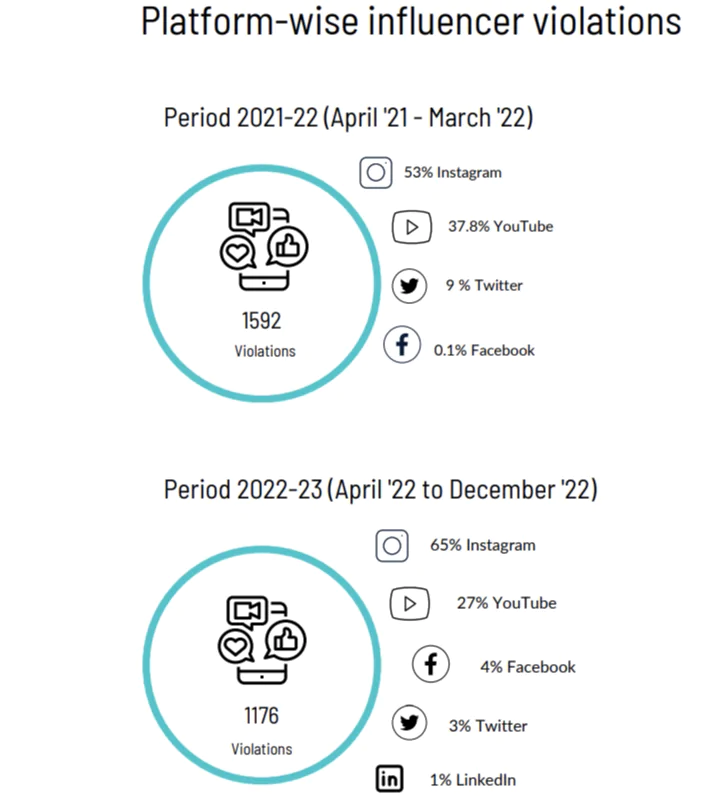Last Updated on July 19, 2024 3:54 pm
The Dark Side of Social Media Influencers: Unmasking the Selfish Reality

In the digital age, social media influencers have become a dominant force, captivating audiences with their curated lifestyles and aspirational content. They have the power to sway consumer behaviour, shape trends, and even influence public opinion. However, as we delve deeper into the world of social media influencers, a more sinister reality emerges – one that is often shrouded in self-interest and a disregard for the well-being of their followers.
This perception of accessibility and “realness” has made them highly appealing to consumers, who are increasingly drawn to the idea of connecting with and aspiring to the lifestyles of these digital celebrities. However, this allure often masks a more complex and, at times, selfish reality. Many influencers are driven by a desire for fame, wealth, and personal gain, prioritizing their own interests over the well-being of their followers.
Social media influencers have managed to cultivate a unique and captivating presence online, leveraging their personal brand and visual appeal to amass sizable followings. Their ability to create engaging content, coupled with their perceived authenticity, has made them a valuable asset for businesses and brands seeking to reach targeted audiences. This allure has led to the rise of a lucrative influencer marketing industry, where companies are willing to pay significant sums to have their products or services endorsed by these influential figures.
The Double-Edged Sword of Social Media Influencers
While the power of social media influencers can be harnessed for positive change, it also comes with a dark side. The very same influence that allows them to shape trends and sway consumer behavior can also be used to promote harmful, unethical, or even illegal practices. This double-edged sword has profound implications for both individuals and society as a whole.
Beneath the carefully curated façade, we often find that some social media influencers are primarily motivated by personal gain rather than a genuine desire to serve their audience. They may engage in deceptive practices, such as purchasing fake followers or using bots to inflate their engagement metrics. This self-serving approach undermines the trust that their followers have placed in them, ultimately eroding the authenticity that was once their greatest asset.
One of the most concerning aspects of the social media influencer landscape is the proliferation of misinformation. Influencers, driven by a desire for attention and financial gain, may choose to promote false or misleading information, ranging from health and wellness claims to political rhetoric. This spread of misinformation can have far-reaching consequences, as it can sway public opinion, undermine scientific consensus, and even put lives at risk.
In some cases, social media influencers have been found to promote illegal or potentially harmful services, such as the sale of counterfeit goods, the provision of unlicensed medical advice, or the endorsement of substance abuse. By leveraging their influence, these individuals are able to bypass traditional safeguards and reach a wide audience, potentially exposing their followers to significant risks.
The Impact on Society and Ethical Concerns

The rise of social media influencers has had a profound impact on society, both in terms of consumer behavior and broader cultural shifts. The constant exposure to idealized lifestyles and the pressure to conform to certain living distort the way people think.
As social media influencers have gained prominence, their ability to shape public opinion and consumer behavior has become increasingly evident. With their carefully curated images and seemingly perfect lives, they have managed to captivate audiences and establish themselves as authorities on a wide range of topics, from fashion and beauty to lifestyle and even healthcare.
However, the influence of these individuals extends far beyond the realm of product recommendations. They have the power to shape societal norms, promote certain ideals, and even influence political and social discourse. This level of influence can have far-reaching consequences, as it can lead to the normalization of unhealthy behaviors, the spread of misinformation, and the erosion of consumer trust.
The influence of social media influencers extends far beyond the digital realm, with ripple effects that can be felt in the real world. These individuals wield an immense amount of power, and with that power comes great responsibility. Unfortunately, many influencers have chosen to prioritize their personal gain over the well-being of their followers.
- Promoting Misinformation: Social media influencers have become a breeding ground for the spread of misinformation, often sharing inaccurate or misleading content to their vast audiences. This can have far-reaching consequences, as their followers may blindly trust and act upon the information they receive.
- Endorsing Harmful Products and Services: Influencers have been known to promote products and services that are unethical, illegal, or even dangerous. From questionable weight-loss supplements to shady financial schemes, these endorsements can put their followers at risk.
- Perpetuating Unrealistic Expectations: The carefully curated lifestyles and images presented by social media influencers can create unrealistic expectations, leading to feelings of inadequacy and low self-esteem among their followers. This can have a detrimental impact on mental health and overall well-being.
The Responsibility of Social Media Platforms

Social media platforms play a crucial role in the rise and influence of social media influencers. These platforms have a responsibility to ensure that the content and activities of their users are aligned with ethical standards and the well-being of their communities. Social media platforms, such as Instagram, Facebook, and YouTube, play a crucial role in the influencer marketing ecosystem. These platforms have the power to set the rules, enforce transparency, and hold influencers accountable for their actions.
Yet, the platforms’ own financial interests in the success of influencer marketing have often led to a lack of proactive measures to address the industry’s ethical concerns. This has allowed the proliferation of unethical practices, further eroding consumer trust and the integrity of the digital landscape.
- Lack of Transparency: Many social media platforms have been criticized for their lack of transparency in how they handle influencer marketing and the disclosure of sponsored content. This can lead to deceptive practices that mislead consumers.
- Inadequate Regulation: The current regulatory framework surrounding social media influencers is often lacking, allowing for unethical practices to thrive. Platforms must take a more proactive approach to addressing these issues and implementing stricter guidelines.
- Prioritizing Engagement over Ethics: Social media platforms have been known to prioritize user engagement and growth over ethical considerations. This can create an environment that incentivizes influencers to engage in questionable tactics to maintain their following and appeal to the platform’s algorithms.
How to Navigate the World of Social Media Influencers
As consumers, it’s crucial that we approach the world of social media influencers with a critical eye and a healthy dose of skepticism. By understanding the potential risks and being mindful of the information we consume, we can navigate this landscape more effectively.
- Scrutinize Sponsored Content: When an influencer is promoting a product or service, it’s important to look for clear and transparent disclosure of the sponsorship. Beware of influencers who try to disguise sponsored content as organic recommendations.
- Verify Claims and Credentials: Don’t take an influencer’s claims at face value. Research the products, services, or information they are promoting to ensure its legitimacy and accuracy.
- Diversify Your Information Sources: Relying solely on social media influencers for information can be a recipe for misinformation. Seek out reliable and reputable sources to corroborate the claims made by influencers.
The Need for Transparency and Regulation

The lack of transparency and accountability in the influencer marketing industry has become a growing concern. Many influencers fail to disclose when their content is sponsored or when they receive compensation for promoting a product or service. This practice, known as “stealth marketing,” undermines the trust that consumers place in these individuals and erodes the credibility of the entire industry.
Moreover, the absence of clear regulations governing the influencer marketing landscape has allowed for the proliferation of unethical practices, such as the promotion of illegal or harmful products, the dissemination of false health claims, and the exploitation of vulnerable audiences, particularly minors.
While the benefits of influencer marketing are undeniable, with the ability to reach targeted audiences and drive measurable results, the risks posed by the industry’s darker elements cannot be ignored. These risks may include issues such as fraudulent practices, lack of transparency, and potential harm to consumer trust. As brands and influencers collaborate, they must navigate these challenges responsibly to maintain the integrity of influencer marketing campaigns.Therefore, it is crucial to strike a delicate balance between harnessing the power of influencer marketing and ensuring that it is done in a responsible and transparent manner.
Conclusion: The need for Transparency and Accountability
To address the dark side of social media influencers, a multifaceted approach is needed. This includes the implementation of clear regulations, the enforcement of transparency standards, and the establishment of robust accountability mechanisms. Regulatory bodies and policymakers must work to develop guidelines that ensure influencers disclose sponsorships, refrain from promoting harmful or illegal products, and maintain truthfulness in their claims. Social media platforms, in turn, should be held responsible for enforcing these regulations and taking swift action against those who violate them.
Moreover, consumers must be empowered to make informed decisions by being educated on the nuances of influencer marketing and the potential risks associated with blindly following the recommendations of these digital personalities. While the benefits of influencer marketing are undeniable, the industry’s darker elements must be addressed to restore consumer trust and safeguard the well-being of our digital society.
At the end of the day, social media influencers only think about their personal gains and don’t really care about their audience as the way they portray themselves or their services. It’s time to hold them accountable and demand transparency from both influencers and the platforms that enable them.
Learn More about Influnecer Trust Report Published by ASCI (Advertising Standard Council of India) below:


